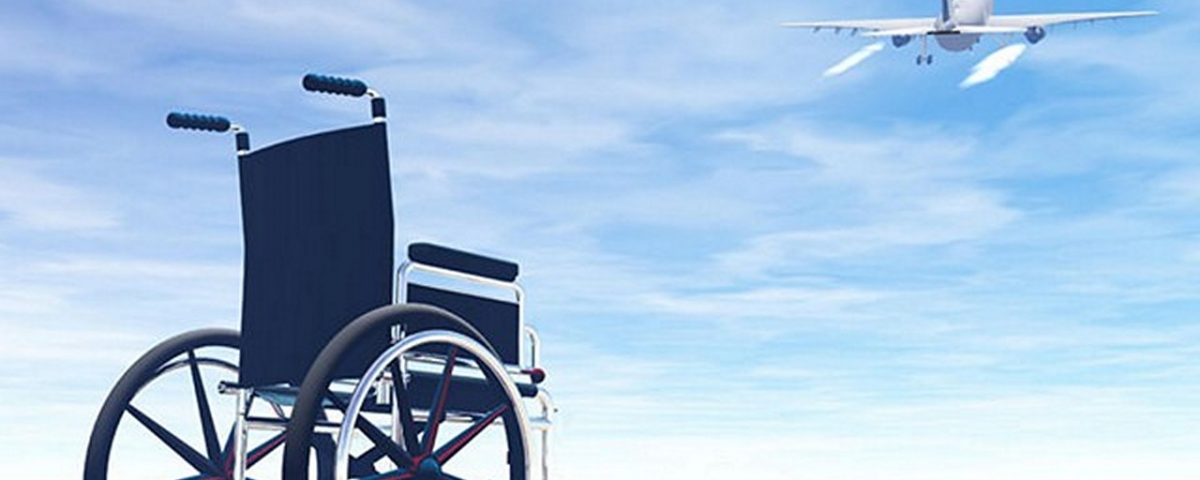[ad_1]
With the summer months fast approaching in the Northern Hemisphere, it is again time to plan vacation travel. But for people with disabilities, this is no easy task. We are often met with numerous challenges, starting upon arrival at the airport. Four out of 10 travelers with disabilities have had their mobility aid lost or damaged by an airline, while six in 10 have experienced extended wait times for mobility assistance at the airport before and after a flight.
In fact, during the first quarter of 2021, airlines reported 712 mishandled wheelchairs or scooters — which amounts to almost eight per day. Spirit Airlines experienced the highest percentage of incidents, damaging 2.88% of enplaned wheelchairs and scooters, followed by JetBlue (2.27%), American Airlines (1.57%), and Frontier Airlines (1.55%). Airlines weren’t legally required to report damages to mobility equipment until December 2018, when Illinois Senator Tammy Duckworth, who uses a wheelchair herself, added a provision into the FAA Reauthorization Act. Still, many travelers are continuing to make the repairs on their own since this allows them to regain their independence more quickly.
Results of the recent survey, The Portrait of Travelers with Disabilities: Mobility and Accessibility, found that 96% of travelers with mobility disabilities have faced an accommodation challenge when traveling, while 86% have experienced airport challenges, and 79% have experienced in-market transportation problems, whether by air, rail or bus.
Still, people with disabilities do need to travel, whether for personal reasons, business reasons, or both. Travelers with mobility issues travel nearly as much as those without issues, taking an average of 3.4 trips in the past 12 months, and spending an average of $3,546 on leisure travel during that timeframe. Further, a 2020 study found that the disability travel market is growing. In 2018-19, more than 27 million travelers with disabilities took 81 million trips, spending $58.7 billion on travel (up from $34.6 billion in 2015). The economic impact is likely even bigger, since people with disabilities often travel with the accompaniment of others.
Since the disability travel market keeps growing, more companies are providing individuals with disabilities the opportunity to travel like their Able -Bodied (ABs) friends, family, and colleagues. For example, Travel for All specializes in varied disabilities, Easy Access Travel accommodates most types of physical disabilities, Seable Holidays specializes in trips for visually impaired travelers, Planet Abled arranges customized tours for people with different types of disabilities, Wheel the World aids adults and seniors with mobility disabilities and wheelchair users, and Tapooz Travel specializes in outdoor excursions for people with disabilities. These companies assess each client’s individual needs. For Example, Debra Kerper from Easy Access Travel expresses, she has gotten good at interviewing clients to find out what they may need, but also, to elevate the fear of travel especially, if one is newly disabled. So, each case is individualized.
Once finding a travel company of your choice, how do you move forward? Some helpful tips include: 1. Do your research and ask lots of questions; 2. See your doctor before you go and keep your medications organized; 3. Plan your transport months in advance; 4. Arrive early to get the best hotel room to suit your needs; 5. Obtain travel insurance and plan airport strategies. You can also join various travel forums to receive accessible travel tips and talk with other travelers who have disabilities.
For women with disabilities, the focus on keeping ourselves safe is also imperative. A World Bank study showed that A number of safety tips can be found here. Additional tips include: Don’t bring valuables, only take what you need (lock up the rest in a safe your own portable safe, or hotel), have a backup bank card, don’t leave your drink unattended, check in regularly with a designated person, prepare important documents, and carry extra cash in case of an emergency.
Doing all of the above it is less likely that you, as a woman, will become a victim, and will be free to travel as freely as any other individual, regardless of your gender.
About the Author: Dawn Grabowski is a fellow with The Loreen Arbus Accessibility is Fundamental Program, a fellowship created with Women’s eNews to train women with disabilities as professional journalists so that they may write, research and report on the most crucial issues impacting the disabilities community. Dawn is also an Actress, Filmmaker, Content Creator, Speaker, Voiceover Artist, Producer, & Sit-Down Comic because she’s not qualified to stand. Born with Central – Nervous Disorder Cerebral Palsy, the industry and the world label her as a Person/Performer With Disability (PWD), but she believes labels are for jars and not for people. IG Handle: @grabowskidawn
[ad_2]












